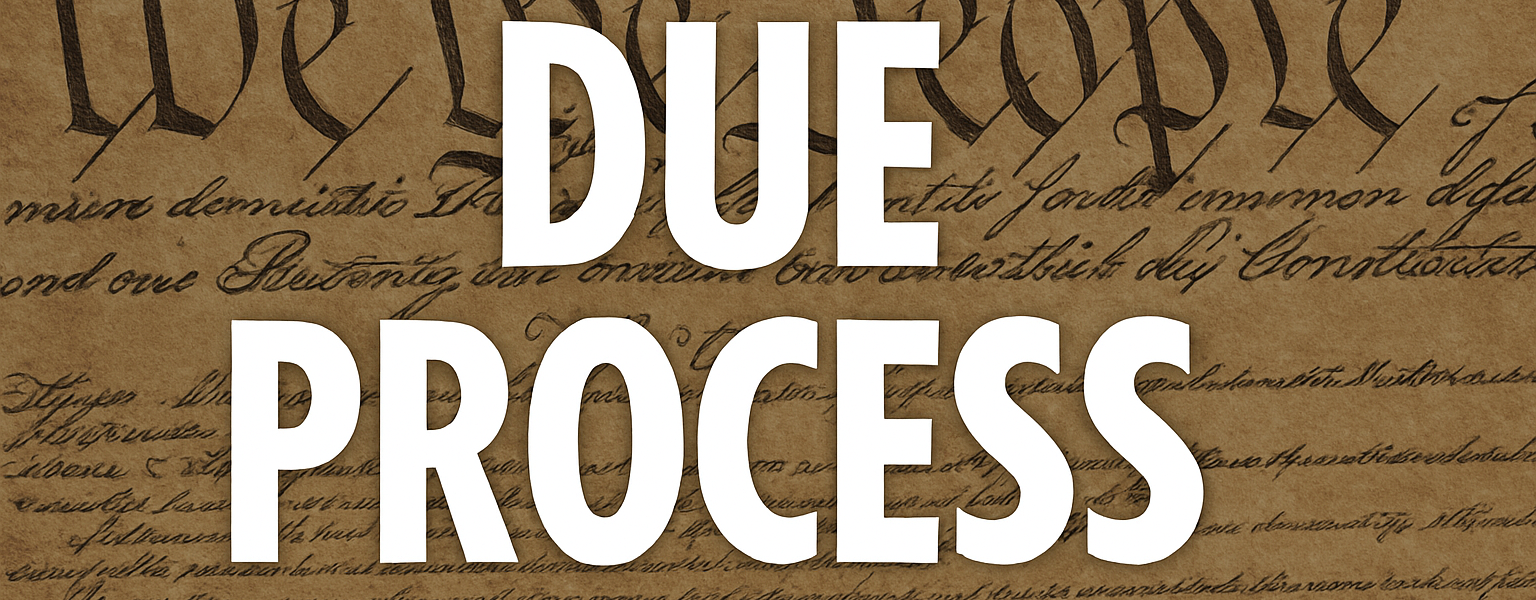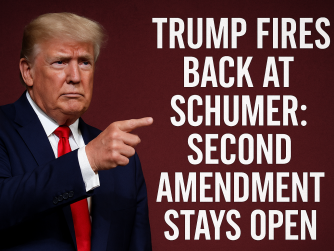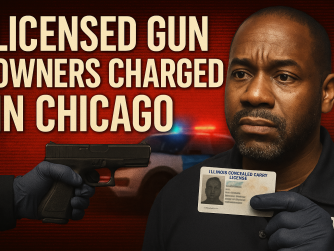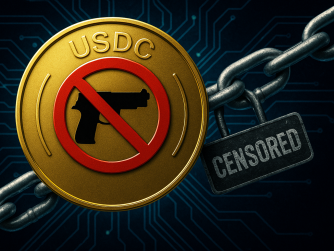Close observers of the gun debate often see references to due process. The National Rifle Association reaffirmed this principle last week, stating:
“NRA does not, and will not, support any policy proposals that implement sweeping gun bans that arbitrarily strip law-abiding citizens of their Second Amendment rights without due process.”
This isn’t just rhetoric. Understanding due process is critical to appreciating how the Constitution protects Americans and imposes accountability on government.
The Opposite of Due Process: Arbitrary Rule
To understand due process, consider its absence. The Declaration of Independence catalogued the abuses of King George III as a “history of repeated injuries and usurpations,” leading to “absolute Tyranny over these States.” Among the charges:
-
Obstructing the administration of justice.
-
Stationing armies without legislative consent.
-
Denying trial by jury.
-
Protecting his own troops from punishment through sham trials.
-
Suspending legislatures and seizing unchecked power.
Without due process, citizens are reduced to subjects of arbitrary authority, facing official violence without accountability. The Founders knew this danger well, which is why they built a government of checks and balances.
Constitutional Foundations of Due Process
The Bill of Rights enshrines due process as a safeguard against tyranny.
-
The Fifth Amendment prohibits the federal government from depriving any person of life, liberty, or property without due process of law.
-
The Fourteenth Amendment, passed after the Civil War, extends the same prohibition to state governments.
Together, these amendments ensure that no government in the United States—federal or state—can strip citizens of fundamental rights without following fair and established procedures.
Substantive vs. Procedural Due Process
Courts have recognized two branches of due process: substantive and procedural.
Substantive Due Process
This standard examines the quality of laws themselves. A law must:
-
Be connected to legitimate objectives.
-
Be clear and understandable.
-
Be specific enough to prevent arbitrary enforcement.
Gun control laws often violate this principle. Consider “gun industry accountability” laws, which impose vague obligations on firearm businesses to adopt “reasonable controls.” In New Jersey, a gun shop in full compliance with existing laws was sued under this standard, only to learn after the fact what it was accused of failing to do. The court deferred to the attorney general’s vague interpretation, effectively letting the state invent requirements case by case.
This is the textbook definition of a law that is void for vagueness—one that gives citizens no fair notice of what’s required and invites arbitrary enforcement.
Procedural Due Process
This standard focuses on the steps government must take before depriving someone of life, liberty, or property. Core requirements include:
-
Advance notice of the government’s actions.
-
A neutral decisionmaker.
-
Opportunity to respond to accusations.
-
Right to present evidence and cross-examine witnesses.
-
Representation by counsel.
-
A written explanation of the decision.
Gun laws often fall short here as well. Red flag laws allow firearms to be seized through ex parte orders—where the accused may not even know a case exists until a sheriff shows up at the door. Even if a hearing is scheduled later, the deprivation has already occurred without the safeguards due process demands.
The Danger of “Common Sense” Shortcuts
Gun control advocates frequently argue that it’s “common sense” to keep firearms out of the hands of criminals, terrorists, or the mentally ill. But broad labels raise crucial questions:
-
Who defines these categories?
-
What evidence connects them to genuine threats?
-
What procedures ensure fair application?
-
How can someone wrongly labeled challenge that status?
-
Can individuals ever restore their rights if circumstances change?
Without robust due process protections, such categories risk becoming tools of political convenience rather than legitimate safeguards.







